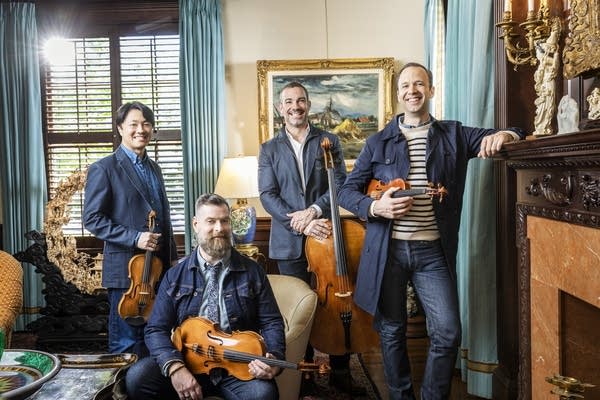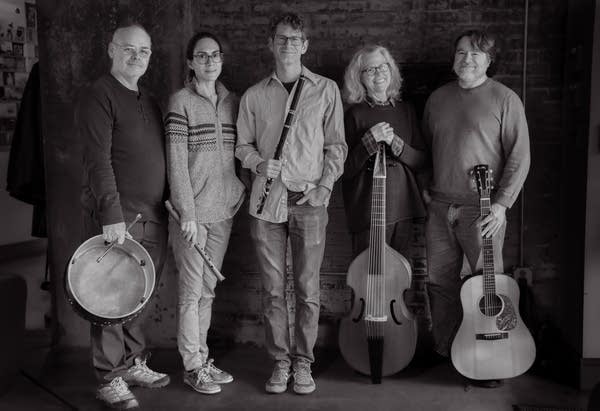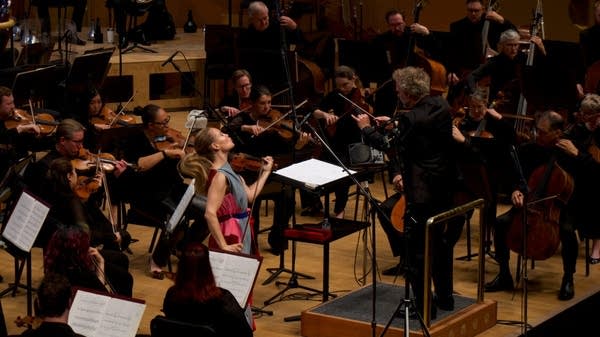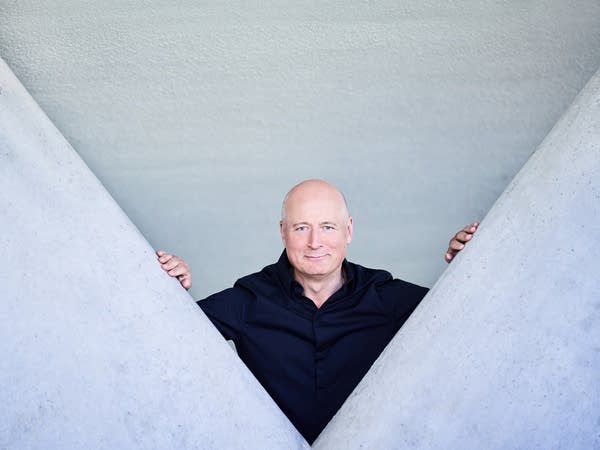
"I think this is one of the main subjects in music. To keep your mind open so it becomes something surprising for you as well. You have to in a way try to keep your innocence, your freshness every time you play somehow." That's Argentinean pianist Ingrid Fliter. On her new collection of Chopin Waltzes she captures a sense of freshness in these familiar pieces. Fliter has been soaking up this music ever since she was a child, when her parents played Arthur Rubinstein's Chopin recordings over and over again, everywhere from the kitchen to the family car.
Fliter won the silver medal in the Chopin Competition in Warsaw in 2000, but what really launched her career was receiving the prestigious Gilmore prize in 2006. The judges for the Irving S. Gilmore International Keyboard Festival review a candidate's work for an extended period before handing out the $300,000 award. It's given out every four years, and contestants aren't even aware they're in the running until they win.
Winning the Gilmore prize changed her life, and so did a chance meeting with legendary Argentinean pianist Martha Argerich. "A very prominent woman from Argentinean music circles organized a party for Martha and many young people were invited, and I knew that the possibility to play for her was there," Fliter recalls. "So I practiced so much the day before, like 15 hours or something, in case she asked for auditions. The day arrived, of course, Martha asked, 'Who wants to play?' Me!"
Fliter was just 17 years old when Argerich helped her relocate and find a teacher in Germany. Fliter began to learn the language by studying German Lieder. She would listen to singers and began to appreciate how each note can have its own individual color. That experience affected the way Fliter approaches the piano, especially when it comes to the music of Chopin. Like a singer, she learned where to give and take in a natural way. "In Chopin," she explains, "the difficulty is to put together his classical soul and his romantic expression. I think Chopin's music touches your heart and your skin in a very simple and direct way."
Ingrid Fliter brings out the unique nuances in each of the twenty waltzes on this recording, each of which sounds like a personal improvisation. The three waltzes in Chopin's Op. 64 are among my favorites. The "minute" waltz, which is actually two minutes in length, makes full use of "tempo rubato," or "robbed time." This was a technique often used in the 19th century which freed the melody as the performer played with the tempo, speeding up slightly or slowing down: in effect, "robbing" time from a strict, regular beat. Fliter generates a sense of anticipation by playing with the rhythm in the Waltz No. 2 in c sharp minor. As she soars into the upper register of the piano, the music is lifted by a delicate sense of wonder.
The Waltz No. 3 in A flat is a bit slower and more romantic. Here the melody is handed off to the left hand. Ingrid Fliter handles the lower register just as delicately as the high notes. She opens the Waltz No. 2 in B minor with a soft whisper, which marks the beginning of a gentle musical caress that lingers throughout the entire waltz.
There are other stand-out pieces as well. The waltz in G flat major reaches into the highest stratosphere of the piano's 88 keys. This waltz really sparkles in the hands of Ingrid Fliter. To hear Chopin's more dramatic side, listen to the powerful runs that open the Waltz in e minor, and repeat every few measures.
In this new collection of waltzes, Ingrid Fliter reveals the many moods of Chopin. We hear the brilliant, the delightful, the thoughtful, and a darker side as well . Through Chopin's music Fliter brings out the true beauty of piano playing. It's that beauty which will captivate you each time you listen to this new recording.
(This is an encore broadcast from November 24, 2009.)
Love the music?
Show your support by making a gift to YourClassical.
Each day, we’re here for you with thoughtful streams that set the tone for your day – not to mention the stories and programs that inspire you to new discovery and help you explore the music you love.
YourClassical is available for free, because we are listener-supported public media. Take a moment to make your gift today.
Your Donation
About New Classical Tracks®
Host Julie Amacher provides an in-depth exploration of a new classical music release each week.
Subscribe on Apple Podcasts, TuneIn, Radio Public, or RSS.











